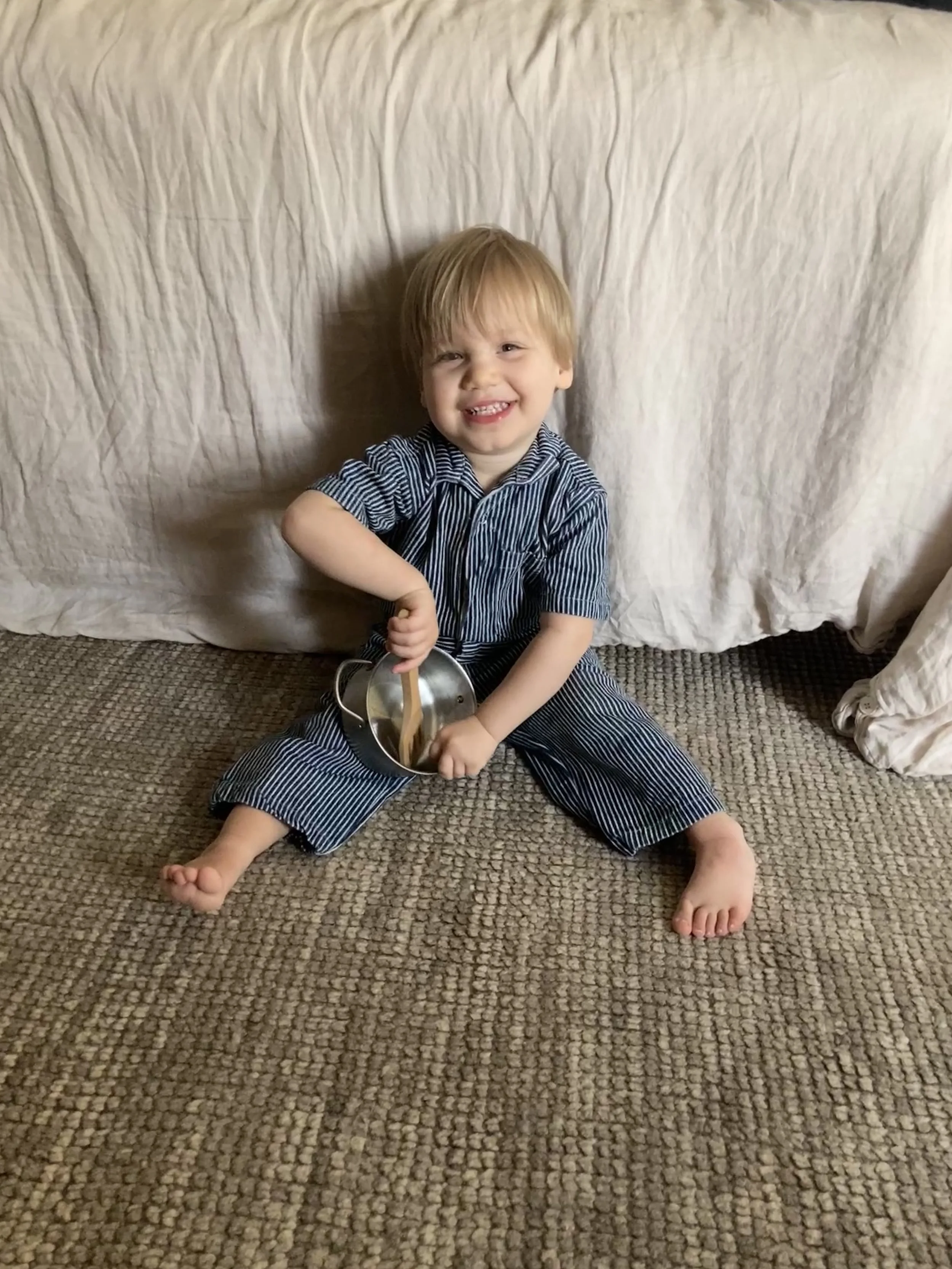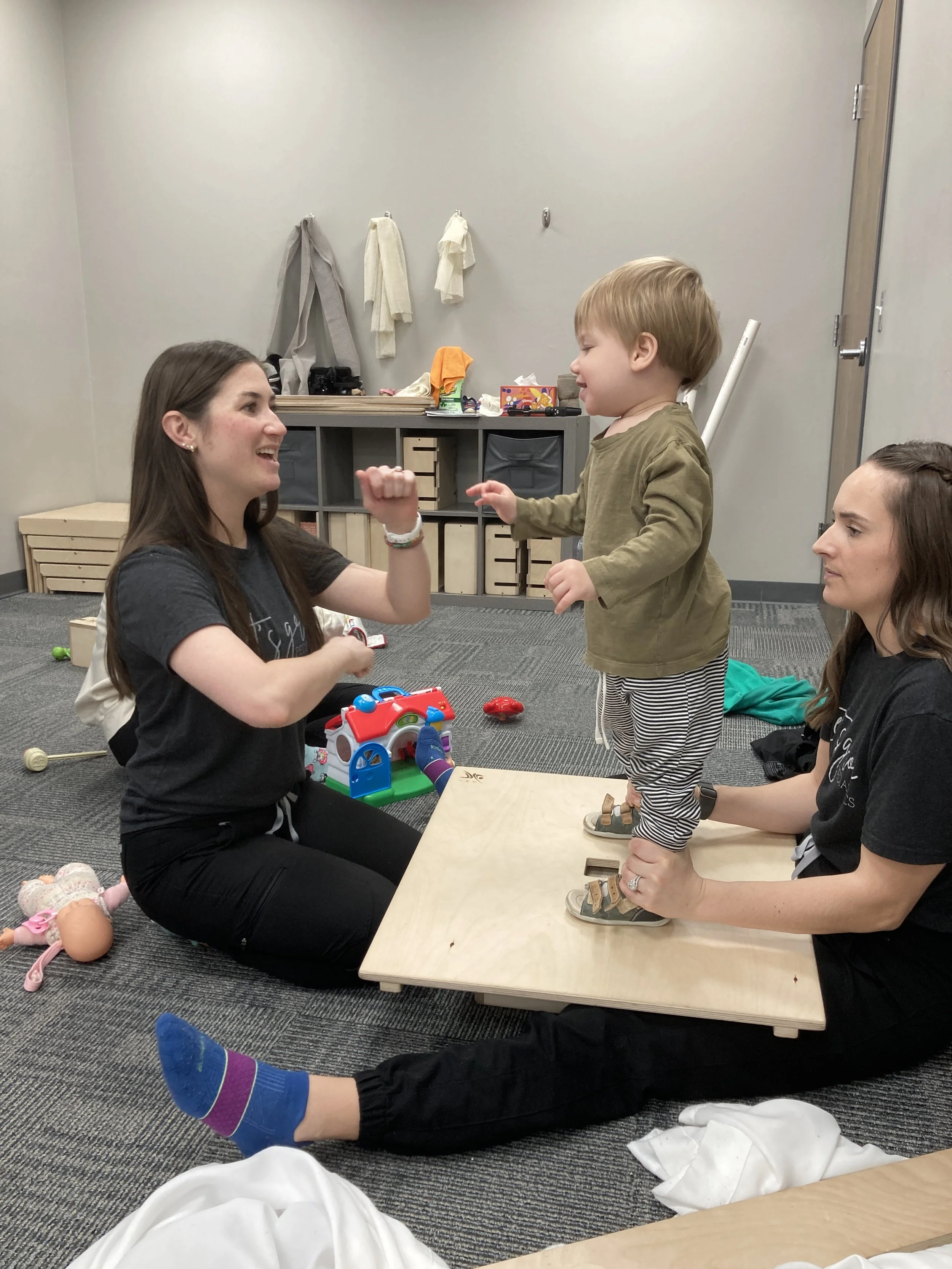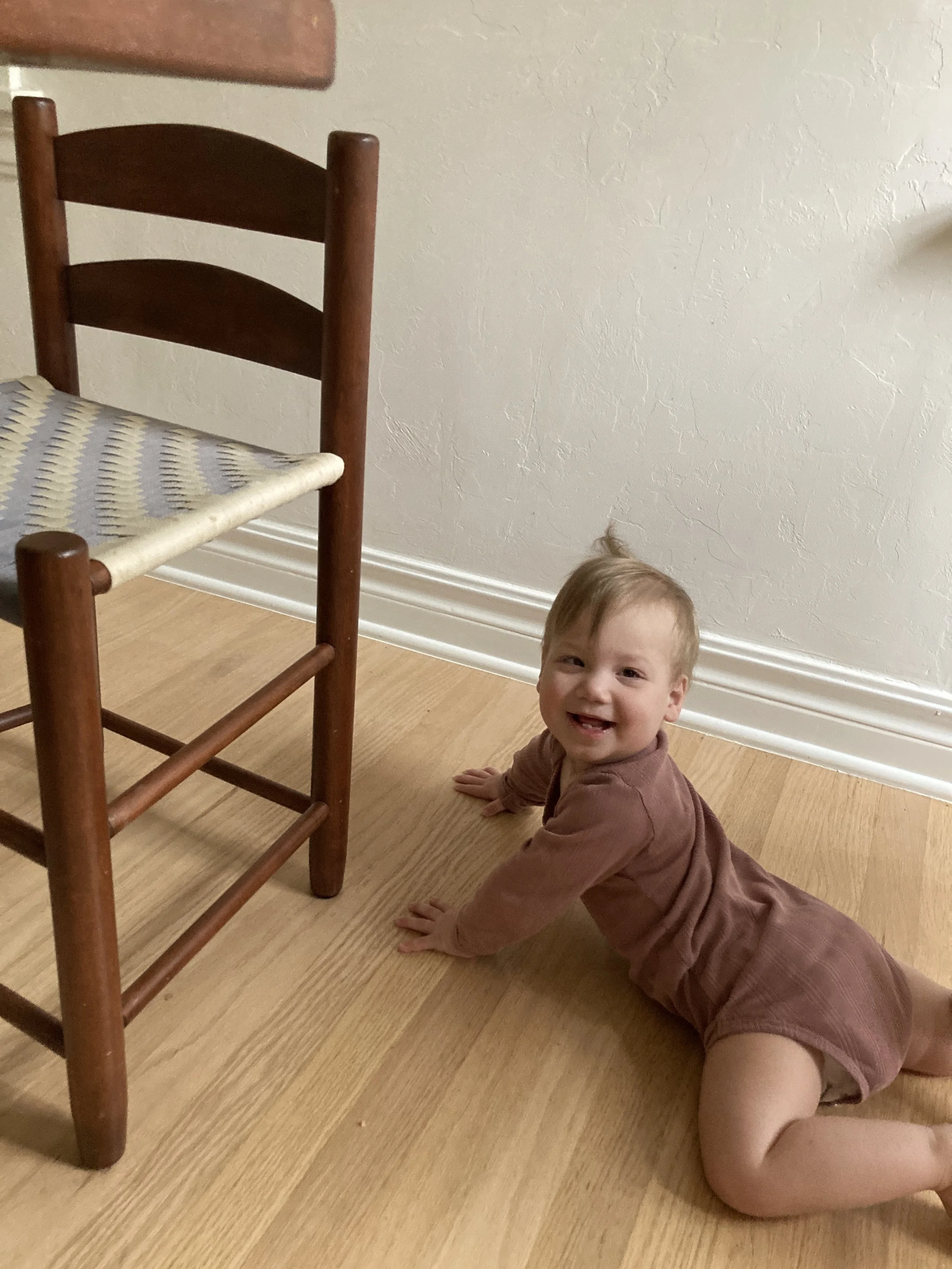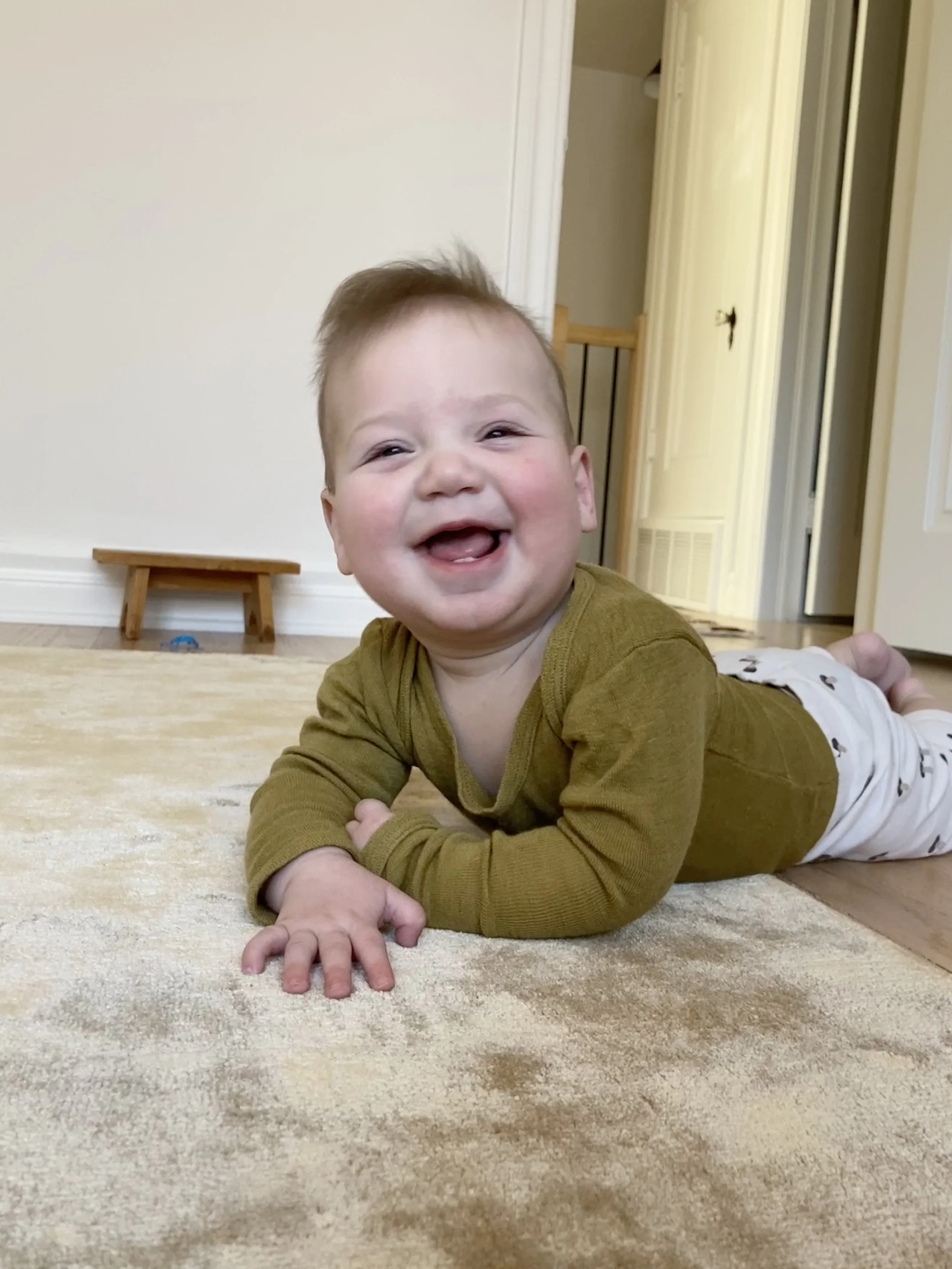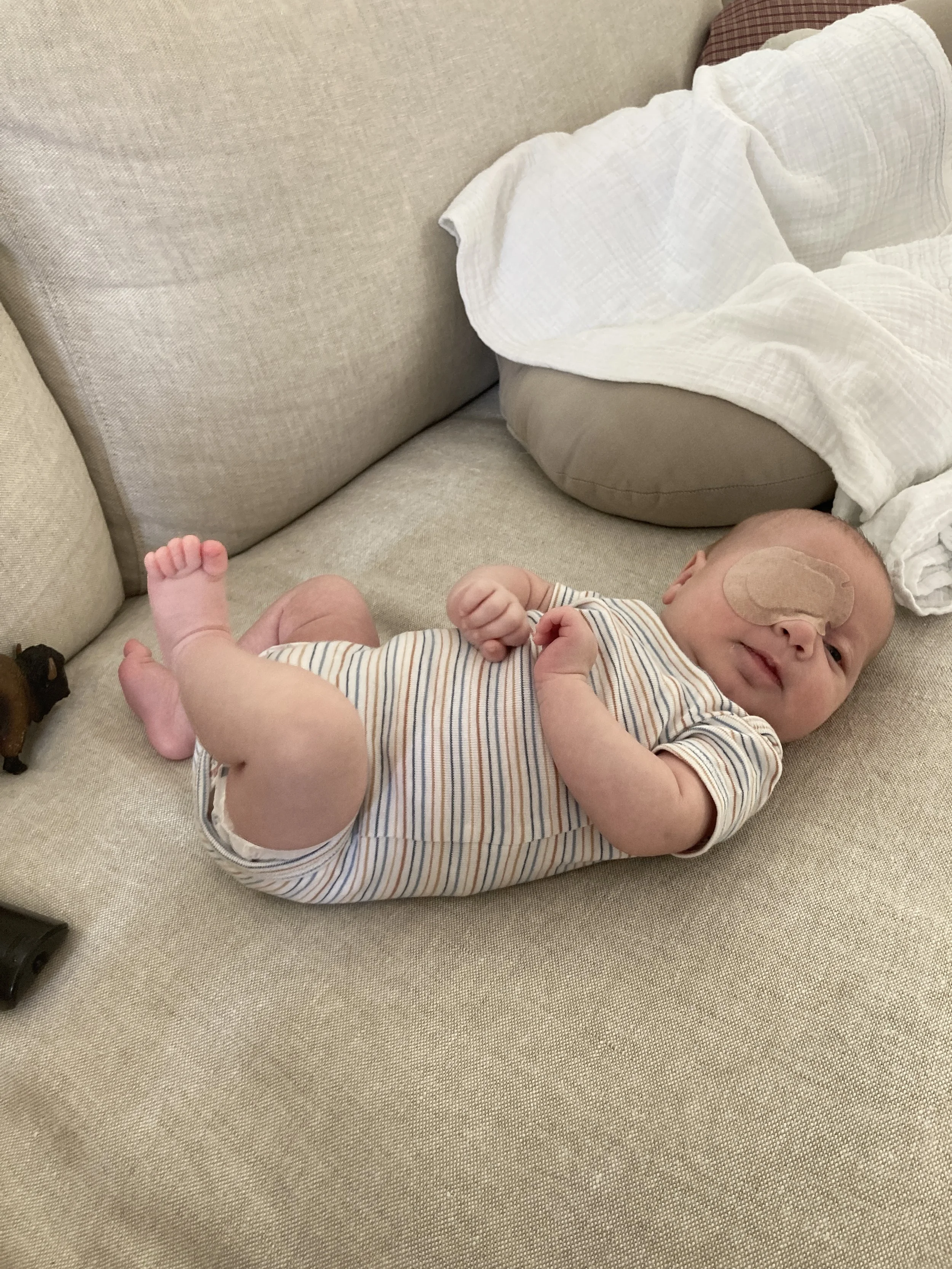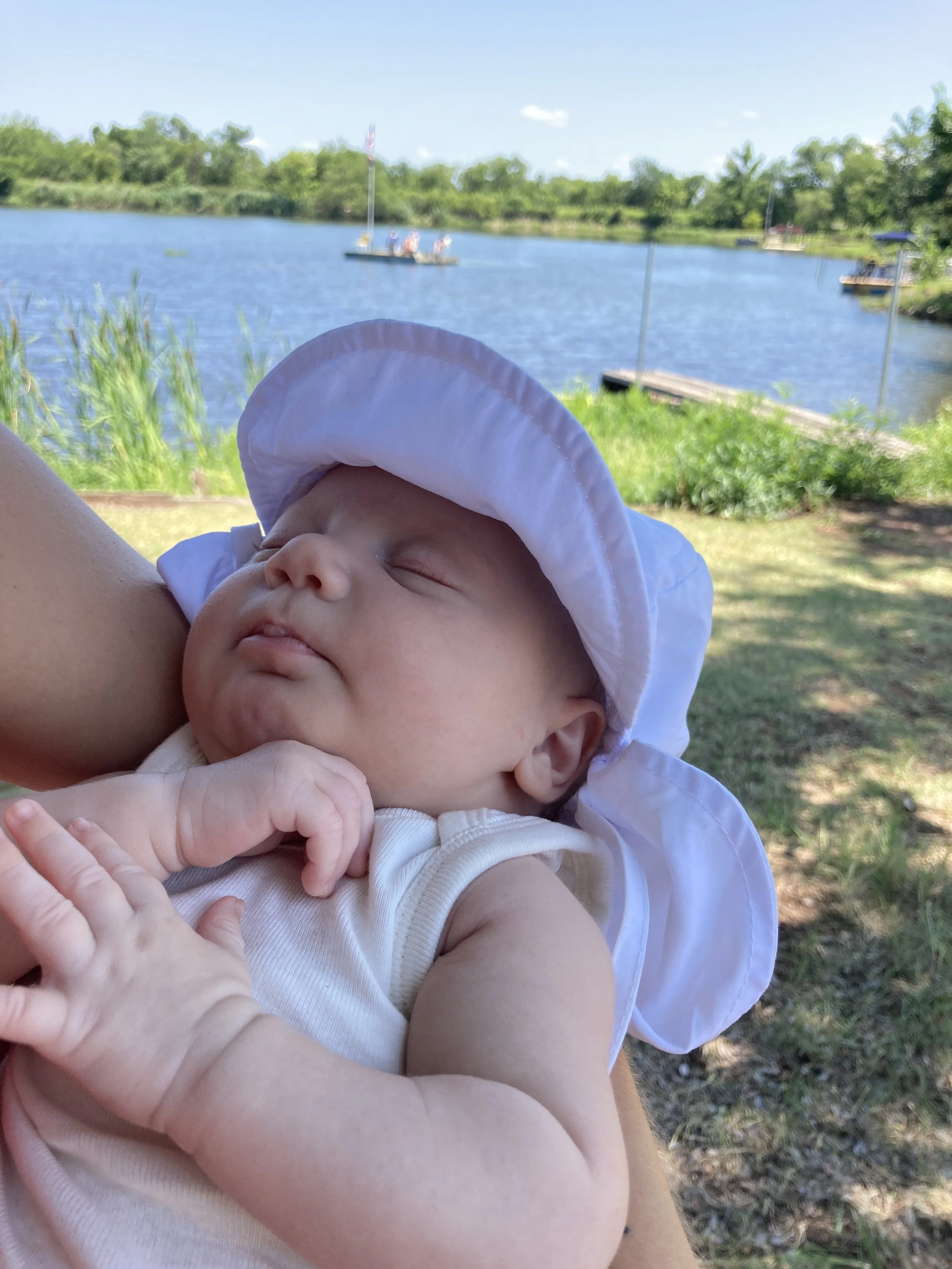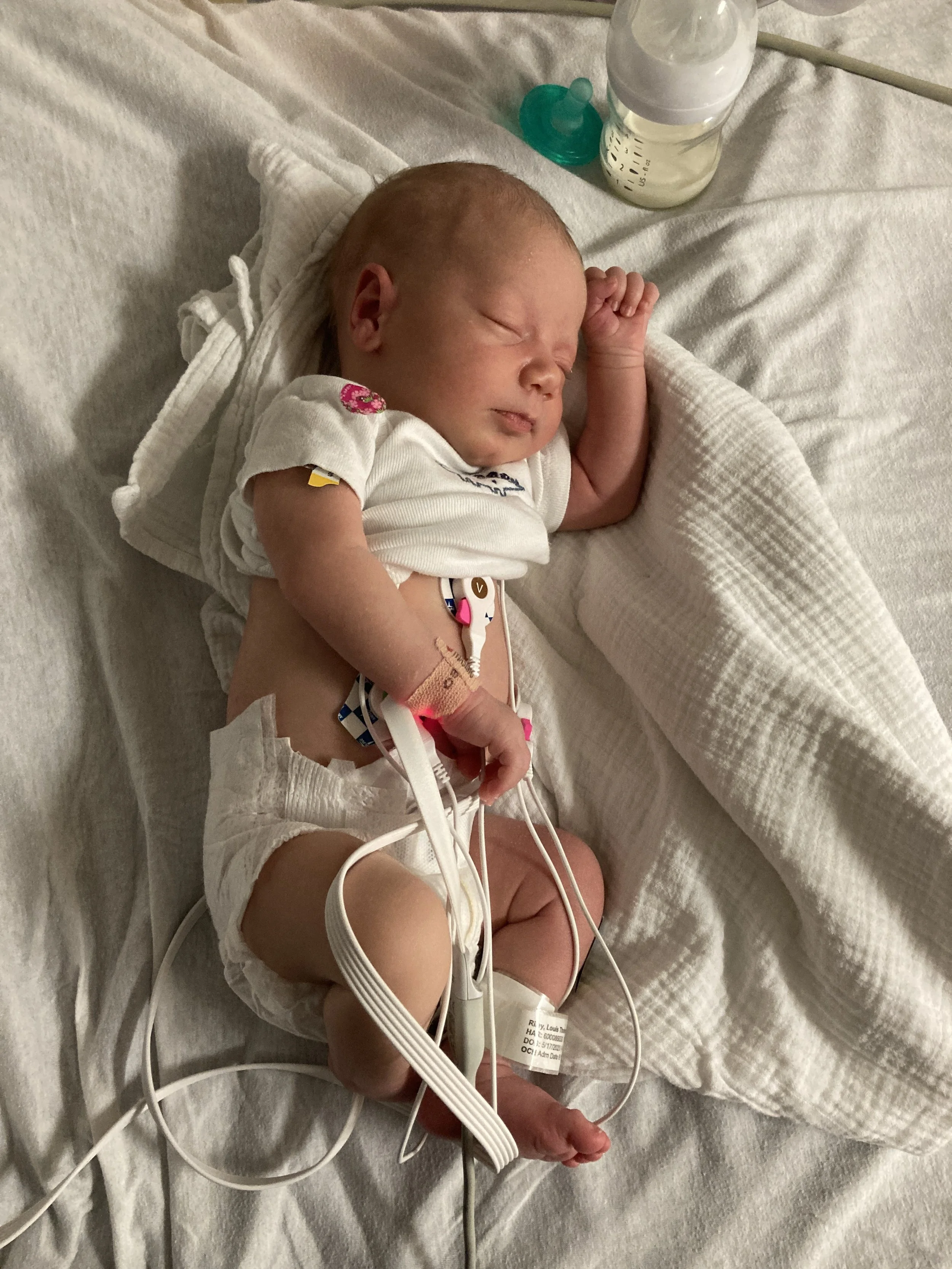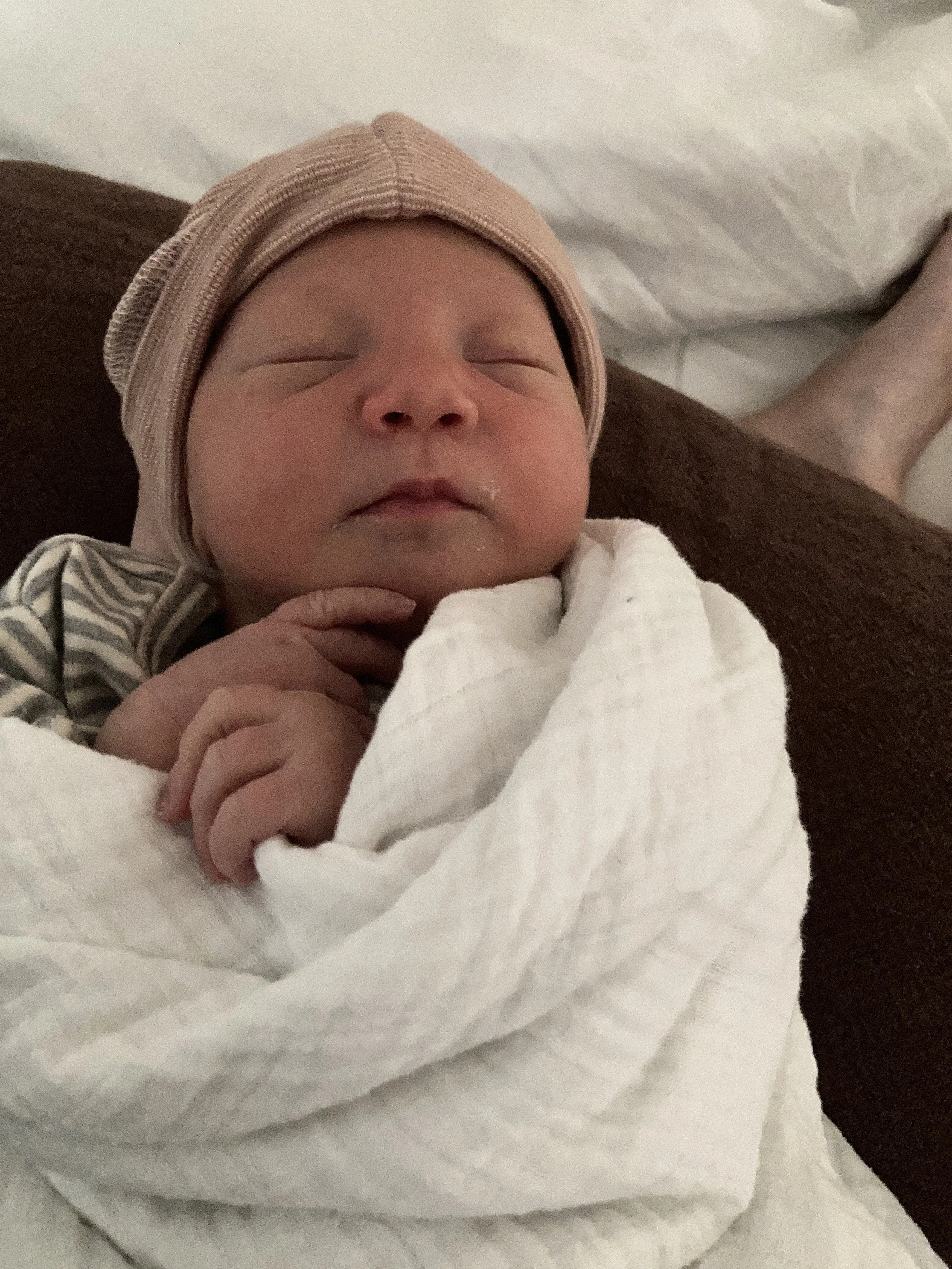Louis’s Story
1 years old, Oklahoma, usa
Louis was born on a warm May evening, following an unremarkable pregnancy and smooth delivery. Though he was small for his gestational age, there were no noticeable health concerns at birth. He was perfect in every way we could see. The next day, things began to change. The routine newborn vision screening was unsuccessful, which led to further testing and the discovery of a congenital cataract in his left eye. That same day, he also underwent a brain ultrasound — to monitor a choroid plexus cyst seen on his 20-week anatomy scan. At the time, the radiologist believed the cyst would resolve on its own. The cataract news was overwhelming and we were struggling to take in what it meant for Louis’s future. It didn’t occur to us, in those immediate moments, that there could be something else going on.
When Louis was one week old, we received a phone call from the radiologist. They had reviewed the ultrasound and noticed areas of grey matter on Louis’s brain that looked like it could be Schizencephaly—a rare brain malformation. But they couldn’t confirm it without an MRI. We had never heard of Schizencephaly. We immediately turned to Google, and what we found only deepened our fear and heartbreak.
Then, when Louis was one month old, he experienced a sudden episode of sinus tachycardia that brought us to the ER at the Children’s Hospital. Because of his age, he was admitted—and during his stay, we were able to get the MRI that had been looming over us. The results confirmed what the radiologist had suspected: Closed-Lip Schizencephaly.
At this point, with both the cataract and brain diagnosis on the table, Louis’s pediatrician and ophtamologist recommended genetic testing. By the end of the summer, we had our answer: Louis had a COL4A1 genetic mutation—a diagnosis known as Gould Syndrome. I remember that phone call so clearly: “Louis has a COL4A1 genetic mutation, we have our answer.” But instead of providing clarity, it only brought more questions for my husband and myself.
In 2023, there were no established US foundations to guide us, no network to turn to for support or information beyond the private FB group — which I found really difficult to take in all of that information at the time. I found solace in a few parents whom I found on social media with the hashtag of his diagnoses and I will never forget their kindness and how they so openly shared their own journey in an effort to make me feel less alone. We reached out to Doug Gould himself and had a Zoom call with him that November. He was kind and helpful, and talking with him brought some understanding. But what we were truly desperate to hear was something no one could give us with certainty: “Your son will be okay. He will live a full life. He will be healthy. He will be okay.”
Learning to live without that answer has been the most difficult part of our journey. But not Louis’s. He wakes up each day full of wonder and joy, undeterred by the uncertainties. His biggest challenge to date is a delay in gross motor development—but he works so hard in his weekly PT and OT sessions, and his progress amazes us every single day. His cataracts were removed at 5 and 11 weeks old. He now wears tiny contacts to see the world—and oh, how brightly he sees it. As I’m writing this he’s climbing on my back and singing along to Ms. Rachel.
Our deepest hope—for Louis, and for everyone diagnosed with Gould Syndrome—is for more awareness, more treatment options, and more resources. We want this condition to be better understood, and for families like ours to feel less alone, especially in those early days following diagnosis. That kind of change is only possible through research, advocacy, and a society that values and includes people with differences.
Make a gift in honor of Louis today!
About The Gould Syndrome Foundation
Gould Syndrome is a rare genetic disorder affecting multiple systems, often involving cerebral vasculature defects, ocular dysgenesis, myopathy, and kidney abnormalities. Emerging features include brain and lung abnormalities. It is diagnosed through a COL4A1 or COL4A2 genetic variant. If inherited, the carrier parent may be mildly affected or unaffected, potentially due to mosaicism, where mutation presence varies across cells.
Donations received support The Gould Syndrome Foundation’s mission to empower and improve the lives of affected individuals and their families through awareness, advocacy, education, and supporting research. We rely on our Scientific and Medical Advisory Board to help guide our decisions when funding research, and will review all applications for research funding using a system of peer review. Our Scientific and Medical Advisory Board is an international group of researchers and doctors expert in all aspects of Gould Syndrome who volunteer their skills to guide our foundation's decision making. Your donation makes a difference in learning more about this rare disease and possible treatments.
If you prefer to donate by check, you may mail it to the following address, and note that your donation is in honor of Louis. You can also add “In Honor Of: Louis” through the donate form.
The Gould Syndrome Foundation
25 Pinecrest Avenue
Peabody, MA 01960
The Gould Syndrome Foundation is an official entity recognized by the federal government and a 501(c)(3) non-profit charitable organization. Your donation is tax deductible. Tax ID: 33-1807591


